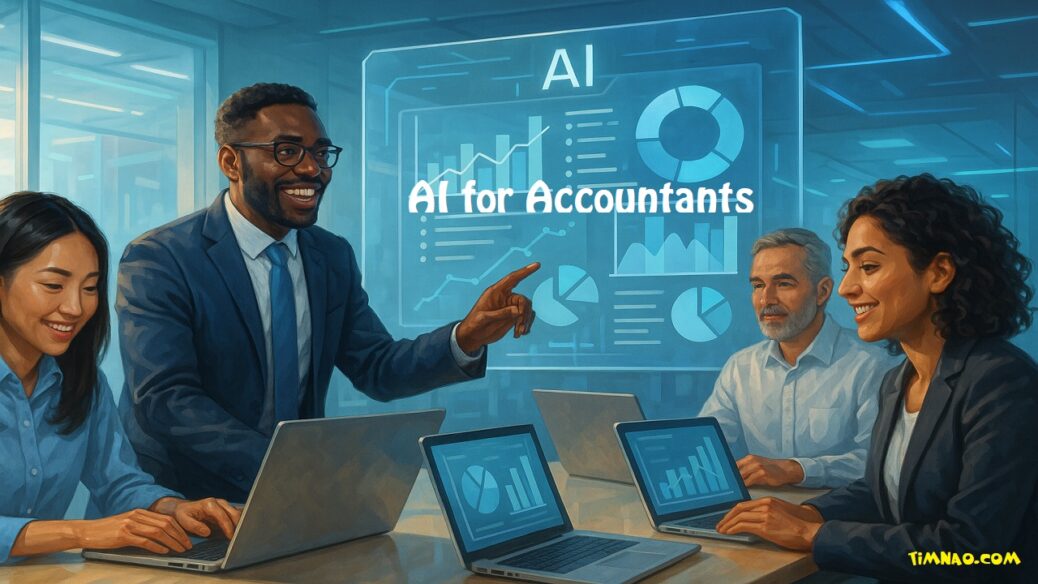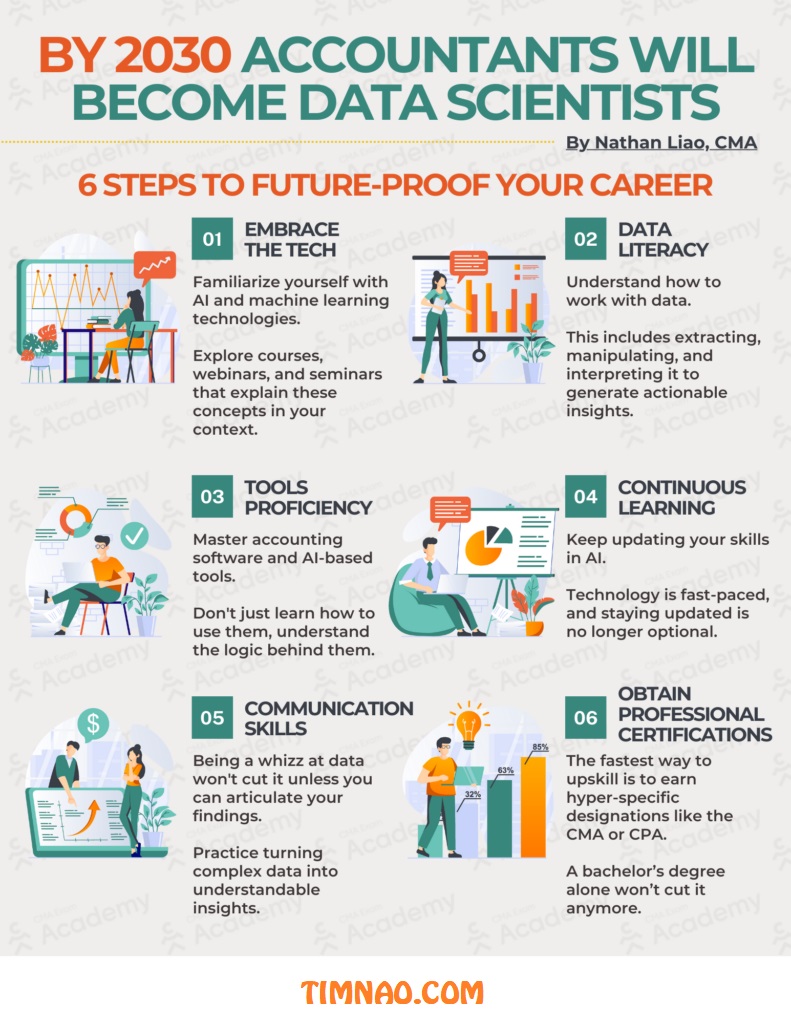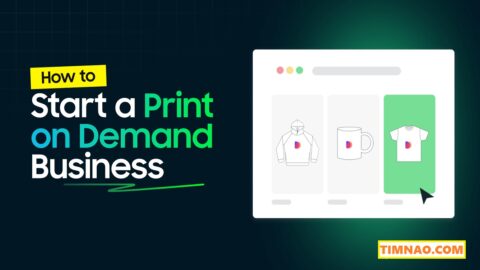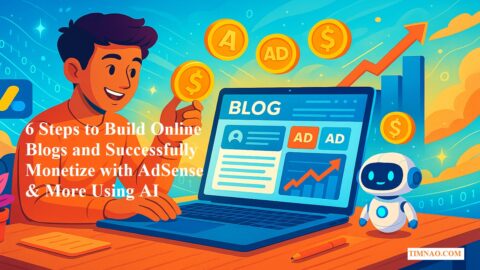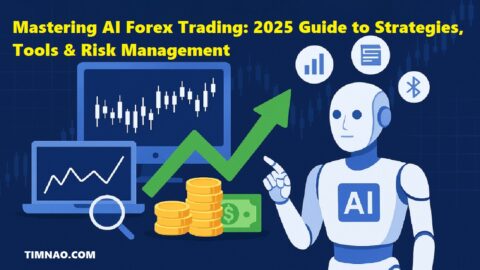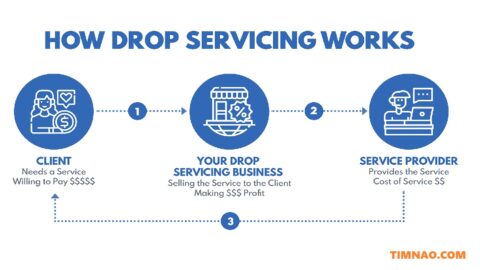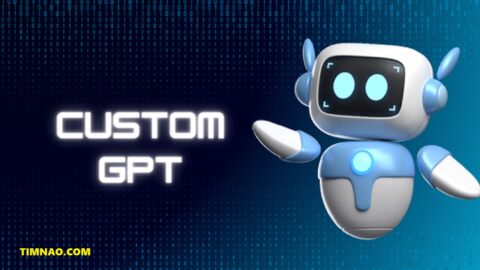✨ Unlock Amazing Efficiency: How AI for Accountants and ChatGPT Are Revolutionizing Your Practice ✨
The world of accounting is undergoing a seismic shift, perhaps the most significant since the advent of spreadsheets. Artificial Intelligence (AI for accountants) is no longer a futuristic buzzword but a present-day reality reshaping how accounting professionals work. Particularly, generative AI models like ChatGPT from OpenAI are transforming the AI accounting practice, influencing everything from client interaction to future strategy. If you’re an accountant wondering how AI for accountants can enhance your specific practice, you’ve come to the right place.
This article dives deep into the practical world of ChatGPT accounting and the broader landscape of AI for accountants. We’ll move beyond the hype and explore tangible ways this accounting technology is streamlining operations, boosting accuracy, uncovering insights, and ultimately freeing you up to provide higher-value advisory services. Forget the textbook jargon; this is a straightforward guide designed to be relatable and understandable, illuminating the path for implementing AI for accountants, even if you’re just starting your AI accounting practice journey.
The adoption statistics paint a clear picture of the rise of AI for accountants: while perhaps only around half of firms might be using AI extensively right now (around 48% according to one recent report), a staggering 98% of accountants have dabbled with AI for accountants tools in the past year. Furthermore, 71% believe AI for accountants will significantly impact their jobs, and AI adoption grew by 34% in just one year. The message is clear: AI for accountants isn’t just coming; it’s here, and embracing an AI accounting practice is becoming crucial for staying competitive.
Let’s explore how you, as a forward-thinking professional, can harness this powerful accounting technology.
🚀 Understanding the AI Revolution in Accounting 🚀
Before diving into specific tools and applications relevant to AI for accountants, let’s grasp the fundamentals.
The Journey from Calculators to Cognitive Automation
Automation isn’t new to accounting. We’ve moved from manual ledgers to calculators, then to basic spreadsheets, and eventually to sophisticated accounting software. Each step brought increased efficiency. AI represents the next quantum leap for the profession, making AI for accountants a critical topic. It’s not just about automating repetitive tasks (though it excels at that); it’s about adding a layer of intelligence. AI systems can learn, analyze complex data, understand natural language, identify patterns humans might miss, and even make predictions or recommendations. Think of the evolution in accounting technology: from bookkeeping to data analysis, and now, to predictive insights and strategic partnership, all accelerated by AI for accountants.
What is ChatGPT and Why Should Accountants Care?
ChatGPT is a powerful large language model (LLM) developed by OpenAI. It’s trained on vast amounts of text data, enabling it to understand context, generate human-like text, answer questions, draft documents, summarize information, translate languages, and even write code. The implications of ChatGPT accounting are immense.
Why is this a game-changer for AI for accountants?
- Time Savings: Automate tasks like drafting emails, generating report summaries, answering routine client questions via ChatGPT accounting methods, categorizing expenses, and even writing Excel formulas. Imagine reclaiming hours spent on tedious work, a key benefit of AI for accountants.
- Enhanced Accuracy: AI for accountants minimizes human error in data entry, calculations, and reconciliation, leading to more reliable financial information.
- Deeper Insights: Analyze vast datasets quickly to identify trends, anomalies, and opportunities that inform strategic advice – a core function of advanced AI for accountants.
- Improved Client Service: Deliver faster responses, clearer explanations of complex topics using ChatGPT accounting prompts, and more personalized, proactive communication – enhancing the client experience within your AI accounting practice.
- Scalability: Handle a larger volume of work and clients without a proportional increase in manual effort or staff, thanks to AI for accountants and accounting automation.
ChatGPT and similar AI for accountants tools empower professionals to shift focus from mundane tasks to high-value strategic advisory, becoming indispensable partners to their clients.
🛠️ AI Tools Transforming Financial Management 🛠️
Beyond ChatGPT, a growing ecosystem of AI-powered tools is specifically designed for finance and accounting functions, defining the modern AI accounting practice. Here’s a look at key categories and examples relevant to AI for accountants:
1. Robotic Process Automation (RPA) Enhanced by AI
RPA handles rule-based, repetitive tasks. When infused with AI, it becomes smarter, making it a valuable part of the AI for accountants toolkit.
- Tasks: Data entry, invoice processing, bank reconciliation, report generation.
- Benefits: Speed, accuracy, consistency, freeing up human staff for higher-level work.
- Examples: Platforms often integrate RPA. Tools like Stampli use AI extensively for AP accounting automation.
2. Machine Learning (ML) for Predictive Analysis & Forecasting
ML algorithms learn from data to predict future outcomes, offering powerful AI financial analysis capabilities.
- Tasks: Cash flow forecasting, revenue prediction, risk assessment – key AI financial analysis applications.
- Benefits: Proactive decision-making, better resource allocation, improved risk management – core advantages of using AI for accountants.
- Examples: Vena Solutions, HighRadius.
3. Natural Language Processing (NLP) for Document Analysis & Communication
NLP enables AI to understand and generate human language, crucial for ChatGPT accounting and beyond.
- Tasks: Analyzing contracts, reviewing reports, extracting data, automating client communication using ChatGPT accounting prompts.
- Benefits: Faster document review, efficient communication, extracting insights from text – vital for an effective AI accounting practice.
- Examples: ChatGPT, Nanonets, OtterPilot™, ScreenApp.
4. AI-Driven Financial Planning & Analysis (FP&A) Tools
These platforms provide real-time insights for strategic decision-making, enhancing AI financial analysis.
- Tasks: Real-time KPI tracking, variance analysis, budgeting, scenario modeling.
- Benefits: Proactive advising, cost-saving identification, improved strategy – key deliverables for AI for accountants in advisory roles.
- Examples: Vena Solutions, NetSuite, Domo.
5. AI for Tax Compliance and Optimization
AI navigates complex tax codes, a critical application of AI for accountants.
- Tasks: Automating calculations, applying current laws, identifying savings, ensuring accuracy, compliance checks.
- Benefits: Reduced errors, maximized savings, compliance assurance – essential for any AI accounting practice.
- Examples: Integrated AI in tax software; specialized tools like Trullion.
6. AI-Powered Bookkeeping & AP/AR Automation
These tools automate core bookkeeping, forming the bedrock of accounting automation with AI for accountants.
- Tasks: Automated data entry (OCR), transaction categorization, bank reconciliation, AP/AR processing.
- Benefits: Time savings, fewer errors, better cash flow visibility – direct results of implementing AI for accountants.
- Examples: Booke AI, Dext Prepare, Docyt, Bill.com, Stampli, Indy, Xero.
Choosing the right accounting technology depends on your firm’s needs, but the benefit is consistent: AI for accountants handles the heavy lifting, empowering strategic focus.
💡 Practical Use Cases: ChatGPT & AI in Your Daily Workflow 💡
Let’s get specific. How can you actually use ChatGPT accounting techniques and other AI for accountants tools day-to-day in your AI accounting practice?
1. Automating Financial Reporting & Analysis
- Streamlined Data Entry: Leverage AI for accountants tools with OCR or use ChatGPT accounting prompts (carefully) to extract and structure data. Convert PDFs to spreadsheets/CSVs effectively.
- Generating Reports: Utilize ChatGPT accounting capabilities to draft report sections based on data. Dedicated AI for accountants tools automate this fully.
- Data Analysis & Insights: Use AI financial analysis features or feed anonymized data to ChatGPT to identify trends, calculate ratios, or explain variances. This is where AI for accountants provides significant value.
- Financial Predictions: Employ ML tools or ChatGPT accounting prompts with historical data for forecasting and scenario analysis. A key component of strategic AI for accountants.
2. Supercharging Tax Preparation & Strategy
- Automated Calculations: AI for accountants tools apply current tax laws accurately.
- Identifying Savings: AI suggests relevant deductions/credits, maximizing value within your AI accounting practice.
- Reducing Filing Errors: AI for accountants performs vital checks, minimizing audit risks.
- Personalized Tax Strategies: Use AI modeling for optimized, client-specific tax planning.
- Compliance Research: ChatGPT accounting prompts can help explain laws (verify sources).
3. Enhancing Client Reporting & Communication
- Customized Reports: AI for accountants enables tailored reports focusing on client-specific metrics.
- Automated Updates: Ensure timely, consistent reporting using accounting automation.
- Data-Driven Recommendations: Use AI financial analysis insights for proactive, strategic advice.
- Improved Client Communication: Employ ChatGPT accounting techniques for drafting emails, summaries, and FAQs. This elevates the AI accounting practice.
- Meeting Preparation: Leverage AI for accountants to quickly prepare relevant insights for client meetings.
4. Streamlining Practice Management
- Workflow Automation: Use AI for accountants tools for task management and optimization.
- Data Cleansing: ChatGPT accounting methods can assist in identifying data inconsistencies.
- Writing Excel Formulas: Get help generating formulas via ChatGPT accounting prompts.
- Marketing: Use AI for accountants tools to assist with content creation for your firm.
Remember, applying AI for accountants, especially generative AI like ChatGPT, requires careful attention to ethics and data privacy.
🛡️ Navigating the Ethical Landscape & Building Trust 🛡️
The power of AI for accountants comes with responsibility. Prioritizing ethical considerations is crucial when implementing any AI accounting practice. Key areas include:
- Data Privacy & Security: Ensure robust security in any AI for accountants tool. Understand data usage policies. Never input sensitive client information into public AI tools without certainty on privacy controls and consent. Specialized AI for accountants tools often offer better safeguards.
- Transparency & Explainability: The “black box” problem is a challenge for AI for accountants. Be able to explain AI-assisted advice. Use AI to augment, not replace, judgment.
- Bias Mitigation: Be aware that AI for accountants tools can reflect biases in training data. Use tools trained on diverse data and monitor for fairness.
- Accountability: The accountant using the AI for accountants tool is ultimately responsible for validating output. Human oversight is non-negotiable in the AI accounting practice.
- Job Displacement Concerns: Focus on “hybrid intelligence” – how AI for accountants enhances human roles, shifting focus to strategy and advisory.
Establishing clear internal policies for using AI for accountants tools is essential for responsible adoption and building trust in your AI accounting practice.
🎓 Preparing for the AI-Driven Future: Skills & Adaptation 🎓
The rise of AI for accountants necessitates an evolution in skills and firm strategies. Adapting your AI accounting practice is key.
Essential Skills for the Modern Accountant utilizing AI
- Data Literacy: Crucial for interpreting outputs from AI for accountants tools and translating data into strategy.
- Technology Proficiency: Competence with AI for accountants software, accounting technology, and data platforms.
- Critical Thinking & Problem Solving: Applying human judgment to insights generated by AI for accountants.
- Communication & Interpersonal Skills: Explaining complex AI financial analysis and building trust becomes central as AI for accountants handles routine work. The advisory role is paramount.
- Adaptability & Continuous Learning: Keeping up with evolving AI for accountants tools and accounting technology.
How Accounting Firms Can Adapt to AI
- Integrate AI Strategically: Embed AI for accountants tools into core workflows methodically.
- Invest in Training & Upskilling: Equip staff with skills for the modern AI accounting practice.
- Re-evaluate Service Offerings: Shift focus to advisory, leveraging AI for accountants insights. Advisory is a growth driver.
- Redefine Roles & Structure: Align staff roles with the capabilities of AI for accountants, emphasizing strategy.
- Foster a Culture of Innovation: Encourage adaptation to new accounting technology and AI for accountants.
- Upgrade Technology Infrastructure: Ensure systems support AI for accountants tools effectively. Cloud adoption is key.
Firms integrating accounting technology effectively report better growth. Proactive adaptation defines the future-ready AI accounting practice.
🔮 Glimpsing the Horizon: What’s Next for AI in Accounting? 🔮
The integration of AI for accountants is accelerating, with future accounting technology promising even more:
- Hyper-Personalization: Highly tailored advice using AI for accountants.
- Advanced Predictive Analytics: More sophisticated forecasting and risk assessment through advanced AI financial analysis.
- Blockchain & AI Synergy: Revolutionizing auditing and verification.
- AI-Driven Advisory: AI for accountants acting as strategic co-pilots. The CFO role becomes more strategic.
- Continuous Auditing: Real-time monitoring enabled by AI for accountants.
While challenges remain, AI for accountants and related accounting technology are viewed as key solutions.
🎉 Conclusion: Embrace the Change, Enhance Your AI Accounting Practice 🎉
The integration of AI for accountants, powered by tools like ChatGPT, is the new standard for an efficient, insightful, and client-focused AI accounting practice. By embracing accounting automation, AI frees you to leverage your uniquely human skills: critical thinking, ethical judgment, and relationship building.
Don’t view AI for accountants as a threat, but as a powerful collaborator enhancing your capabilities. Start exploring ChatGPT accounting applications, investigate specialized AI for accountants tools, invest in your skills, and guide your firm’s adaptation towards a robust AI accounting practice.
The future of accounting is intelligent, automated, and advisory-driven. By embracing AI for accountants now, you position yourself and your firm not just to survive, but to thrive in this exciting new era of accounting technology.
If you need informtaion about “Write with AI”, check here: https://timnao.com/write-with-ai-10-incredible-ways-to-grow-your-business-using-smart-marketing-strategies/
Reference video:

